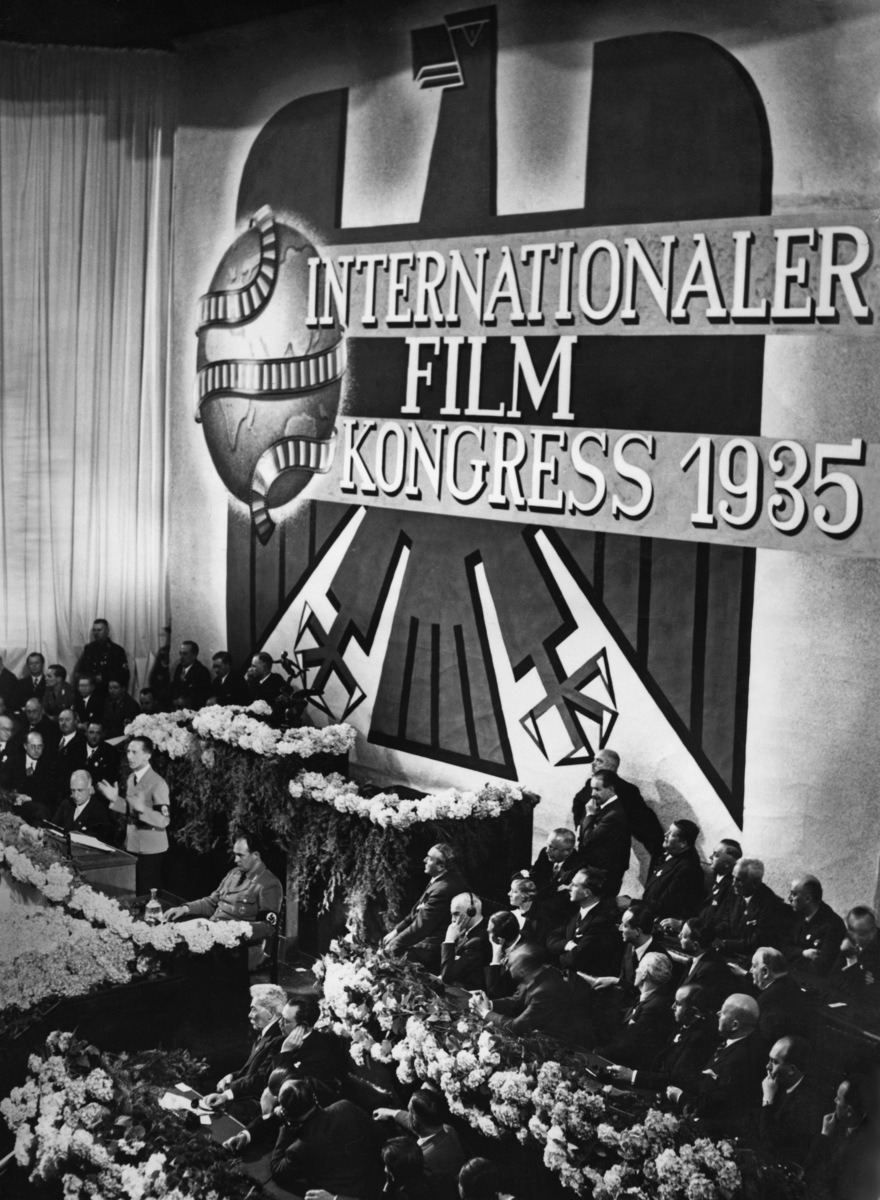Source

Source: Photograph, 1935. Unknown photographer. SZ-Photo
In April 1935 Germany hosted an International Film Congress, organized by the Reichsfilmkammer [National Film Chamber], which was part of Goebbels’ propaganda ministry. Its stated goal was to improve cooperation between Germany and other European countries in the area of film. While the Nazi regime withdrew Germany from the League of Nations in October 1933, it did maintain a presence in other areas of international relations. Welcoming over 2,000 people, the International Film Congress featured European films and exhibits at the Reichstag, the Kroll Opera House, and the Ufa studios. In the evening, guests attended lavish dinners, banquets, and dances. Pictured here is Joseph Goebbels delivering his opening remarks at the congress. Nazi leaders like Goebbels hoped the congress could be used to counter the influence of Hollywood by promoting a distinctly European film industry. The Nazi regime saw Hollywood as the epitome of cosmopolitanism and “infested” by American Jews. Events like these stood as an example of the Nazis’ peculiar internationalism that tried both to foster a Germany-first foreign policy and create a distinctly European cultural order under German leadership. These efforts were a small part of a larger initiative by the Nazis to create what one historian has called the “Nazi-fascist new order” for Europe and European culture.

Source: Photograph, 1935. Unknown photographer. SZ-Photo
© SZ-Photo/IBL Bildbyra